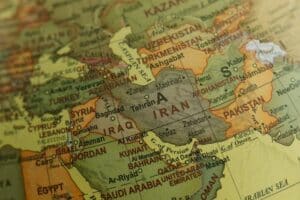There is little wonder why expats love the Middle East. The traditions, sights, sounds, and fragrances of the Middle East are fascinatingly diverse.
The Middle East, a meeting site for the ancient traditions of Christianity, Islam, and Judaism, is home to three major world faiths with overlapping historical roots.
Some of the best desert scenery in the world can be found here, but there are also snow-capped peaks (the highest being the volcanic Mount Damavand in Iran), lush valleys, especially in Israel, Lebanon, and north Jordan, hip cities like Tel Aviv, Dubai, or Beirut, and world-class diving around the coasts of the Red and Arabian Seas.
Luckily, with careful consideration, travelers can stay for a long time in the region and receive excellent value in addition to life-changing experiences. In this article, we will look into the cheapest countries to live in the Middle East in 2023 for expats who want to stay in the wondrous land.
If you want to invest as an expat or high-net-worth individual, which is what i specialize in, you can email me (advice@adamfayed.com) or use WhatsApp (+44-7393-450-837).
Table of Contents
What factors should you consider before moving to the Middle East?
When deciding to relocate to the Middle East, it is essential to consider several factors to ensure that you choose the most suitable country for your needs. Here are some key factors to keep in mind:
- Cost of living: The cost of living can vary significantly from one country to another in the Middle East. It is crucial to research and compare the prices of essential items such as accommodation, groceries, transportation, and healthcare.
- Housing: Housing is a significant expense for anyone looking to move to a new country. Understanding the rental market and property prices in different countries can help you determine where you can find affordable housing options.
- Transportation: The availability and affordability of transportation options are vital for a comfortable living experience. Consider the cost of public transportation, fuel prices, and the quality of road infrastructure in the country you are considering.
- Healthcare: Access to quality healthcare is essential for your well-being. Research the healthcare system in each country, including the availability of medical facilities, the cost of health insurance, and the quality of healthcare services.
- Education: If you have children or plan to pursue further education, it is crucial to consider the quality and affordability of education in the country you choose.
- Safety and security: Ensuring your safety and security should be a top priority. Research the crime rates, political stability, and the country’s overall safety record before making a decision.
- Cultural background: Every country has its unique culture and way of life. Consider the cultural values, customs, and traditions of the countries you are interested in to ensure a smooth transition and an enjoyable living experience.
Considering these factors will help you make an informed decision and choose the most affordable and suitable country to live in the Middle East.
Cost of living in the Middle East
The cost of living in the Middle East varies significantly from country to country. While some countries may have a higher cost of living due to their economic prosperity and luxurious lifestyle, others offer a more affordable and budget-friendly experience
The UAE, particularly Dubai and Abu Dhabi, have a reputation for being expensive cities to live in. The cost of accommodation, dining out, and entertainment can be quite high. However, it is still possible to find affordable options if you are willing to live outside the city center and make smart choices.
Qatar is known for its high standard of living and luxurious lifestyle. While it may not be the most affordable country in the Middle East, it offers excellent job opportunities and tax-free salaries, which can offset the higher cost of living.
Meanwhile, Oman is considered one of the more affordable countries in the region. The cost of accommodation, food, and transportation is relatively reasonable compared to other Gulf countries. It also offers a high standard of living and a safe environment.
Jordan is a popular choice for expatriates due to its affordability and rich cultural heritage. The cost of living, including rent, groceries, and healthcare, is relatively low compared to other countries in the region. Jordan also offers beautiful landscapes and historical sites to explore.
Egypt is one of the most affordable countries to live in the Middle East. The cost of living, including accommodation, food, and transportation, is significantly lower compared to other countries in the region. Egypt also offers a rich cultural experience and historical attractions.
While these are just a few examples, it is important to conduct thorough research on the cost of living in specific cities or regions within each country to get a more accurate understanding. Keep in mind that the cost of living can vary depending on your lifestyle choices and personal preferences.
What are the cheapest countries to live in the Middle East?
If you are looking for the most affordable countries to live in the Middle East, there are a few options in the region that offer a relatively low cost of living without compromising on quality of life.
Egypt
Egypt is known for its affordable cost of living, making it an attractive option for those on a tight budget. Accommodation, transportation, and food are significantly cheaper compared to other countries in the region. Egypt also offers a rich cultural experience and historical sites to explore.
Egypt, the land of the pharaohs, always has that air of being shrouded in mystery. Which is why visitors, researchers, and history buffs have always been drawn to the Arab Republic of Egypt.
Everyone who has ever been to Egypt will tell you that the country is home to thousands of different spices, teas, and fruits. You can get a wide variety of seafood, meat, salads, and even roasted pigeons in Egyptian cuisine.
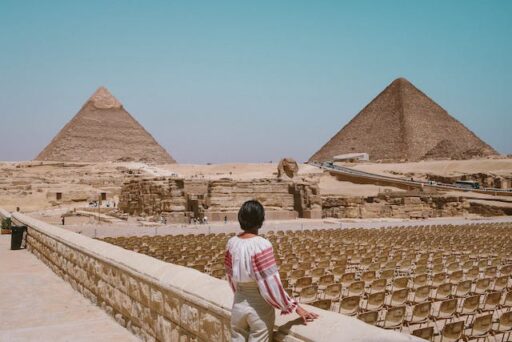
The dishes are affordable yet still look good, taste well, and are prepared perfectly. However, the magnificent Egyptian bazaars and markets are even more impressive.
You should go there since the selection, prices, and aromas are among the best you will find anywhere in the globe for healthy food and exotic species.
A family of four’s estimated monthly costs without rent are $1,205.9 (37,219.2 EG£). For a single person, the estimated monthly costs without rent are $240.25 (56,711 EG£).
If you want to live here, all utilities for an Egyptian apartment rental will be billed individually. Your monthly expenditures will change depending on whether or not you choose to heat your water with electricity or gas.
Trash collection and cockroach extermination are two further examples of unofficial services for which you may have to pay on occasion in Egypt.
In the heart of Egypt’s major cities, a one-bedroom apartment will set you back around $125.96 each month.
At the same time, identical accommodation distance from downtown will be only $77.68 and you can save a little if you do not need to spend much on transportation.
The typical Egyptian would prefer buy food at the market and prepare it at home for friends and family than go out to a restaurant or bar. At least a sizable portion of their income is invested in the market.
The cost of housing and transportation combined is the third most regular expense.
Still, people are willing to spend 15.2% of their income on eating out, suggesting that they frequently get out of the house on weekends and holidays. Utility costs are remarkably low in Egypt because of the country’s favorable environment.
Egypt has relatively modest wages and pensions. In order to afford food, clothing, and household items, many seniors rely on financial assistance from their offspring. The average urban salary in Egypt is $142.04, though this varies widely across the country.
The minimum salary in Egypt is among the world’s lowest, and it is recommended that you source your income elsewhere if you plan to reside here.
Turkey
Turkey is generally more affordable to live in compared to many other countries in the Middle East. The cost of living in Turkey varies depending on the region, but overall it is considered to be cost-effective, especially in smaller cities.
Turkey has a 1.57-fold lower cost of living than the rest of the world, with an average annual salary of $650. Depending on where you live and how you choose to live, the cost of living in Turkey can range widely.
Housing expenses vary by location, with Istanbul being the most expensive city in the country. Utilities, internet, and mobile communication are reasonably priced.
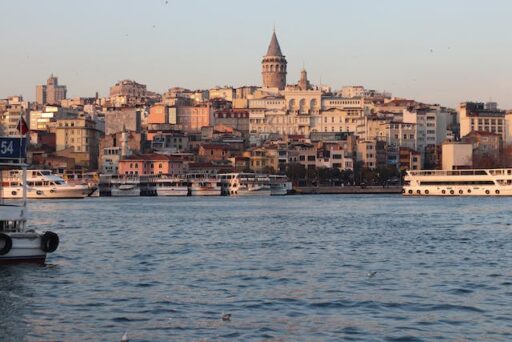
An apartment in Ankara or Izmir can be rented for $500-$700, whereas in Istanbul it might cost anything from $800 to $1300.
Without rent, a family of four in Istanbul may expect to spend an average of $1,974.5 (56,389.6TL) each month, as calculated by Numbeo.
The cost of food is relatively low, with fresh products widely available. Public transport is affordable, but many Turks prefer cars, despite high fuel costs and car insurance.
However, entertainment, dining out, and alcohol can be expensive due to high taxes. Medical care in Turkey is of high quality, with mandatory insurance and reasonable consultation fees
How much it costs to maintain one’s standard of living in Turkey is likely to differ from one individual to the next. Depending on one’s way of life and spending habits, a foreigner’s monthly cost of living in Turkey can range from about $500 to $1,500 in US dollars.
Iran
Compared to other Middle Eastern countries, the cost of living in Iran is quite inexpensive. In comparison to the rest of the globe, the cost of living in Iran is significantly lower at $657 per year on average.
The average cost of living in Iran differs from city to city and lifestyle to lifestyle. In Tehran, the country’s capital, a one-bedroom apartment in the downtown area goes for about $370 per month on average. A fast food meal will set you back about $3.72.
In Iran, a month’s worth of expenses can be covered by the average net pay (after taxes) of $298.
Cost of living in Iran is lower compared to other Middle Eastern countries. As an illustration, compared to Turkey, living expenses in Iran are 29% lower.
Factors such as the country’s vast population, continuous economic sanctions, and the depreciation of the Iranian Rial all contribute to the high cost of living in Iran.
In addition, in comparison to other countries, medical treatment is rather affordable. The main cities tend to have the best hospitals and doctors in terms of worldwide standards, however this is not always the case.
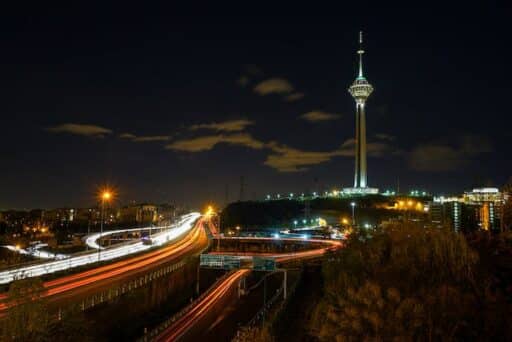
The embassy of your country should be able to assist you. The Iranian community is kind and accommodating, so you can count on getting the aid you need no matter where you happen to be.
Since access to medical care is limited outside of big cities, the majority of Iranians will visit their neighborhood pharmacy to stock up on medications and other necessities.
When it comes to medical treatment, most expats rely on private health insurance. Insurers may not be able to pay doctors immediately in Iran, therefore it is important to find out in advance whether your plan will pay providers directly or refund you later for health costs.
Take note that the Iranian government does not make crime rate numbers publicly available, and international and local news only reports a percentage of crimes committed. Still, it is smart to be safe and secure by taking the appropriate measures.
Keep your passport with you at all times, and secure it to your person, as the black market for stolen passports is growing.
Pickpockets and other street criminals frequent busy bazaars, so exercise caution if you find yourself in one. It is best to avoid Sistan-Baluchistan, Bam, and the area east of Bam and Jask, where banditry and drug trafficking are particularly prevalent.
The roads are the most dangerous place to be. The native population of Iran has one of the world’s highest rates of road fatalities due to a general disregard for safety.
Be very cautious near the contraflow bus lanes, speeding motorbikes, and pedestrian crossings. Should you need it, the emergency number for the police is 110 (112 from a cell phone will also get you through to the police).
Crimes directed toward non-locals are uncommon, nonetheless. You will be treated with kindness and respect if you make an effort to adopt the Iranian way of life.
Tunisia
Tourists are drawn to Tunisia not just by the country’s stunning architecture, but also by the low cost of living there compared to other countries in the region. Still, budgeting carefully is a crucial element of getting set up for life in Tunisia.
Consider not only the obvious, such food and shelter, but also your salary, transportation, and other miscellaneous costs.
Despite its prosperity and progressive outlook, Tunisia’s healthcare system lags behind that of most Western nations.
Expats from the West should also be aware that the vast majority of hospital staff will not speak English fluently, making French or Arabic the only options for communication. Public hospitals are generally overcrowded and have inferior quality equipment.
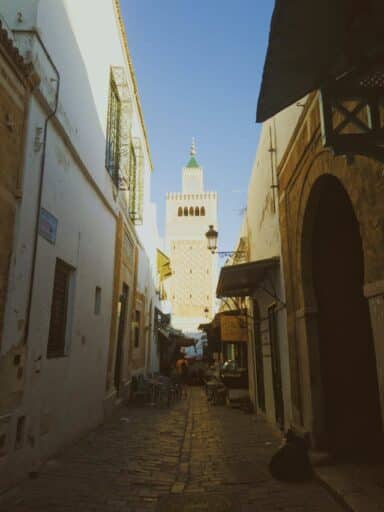
Getting good private health insurance is essential for anybody living in Tunisia due to the high cost of medical care. It is considerably more likely that you will find an English-speaking doctor and better quality specialist amenities at a private clinic.
While the built-up districts of Tunis, Sfax, and Sousse all boast good paved roads, the same cannot be said for many smaller towns or the rural parts of the country.
When you get away from the city, the roads become much more dangerous due to the presence of animals and the lack of streetlights. Make sure the proper authorities are aware of any upcoming desert travel plans.
Defensive driving is essential on busier roadways. Keep in mind that the Tunisian police are notoriously random in their stops.
Whether you believe you are in the wrong or not, you should nonetheless follow the rules. If you plan on staying in Tunisia for an extended period of time, you have the option of either driving with your national license or exchanging it for a local one.
The national bus services, however, are a much more convenient option for getting around. They are convenient, affordable, and accessible both inside and across cities.
You should exercise extra caution if your travels take you away from Tunisia’s tourism hubs and resort areas. Theft-related dangers, such as pickpocketing and mugging, pose the greatest threat to foreign residents in Tunisia.
Expat women should be wary about flashing their handbags and wallets in public, while male expats should do the same.
Harassment of women in public spaces is also an issue in Tunisia. Even though women are free to wear whatever they like (as long as it does not violate any religious norms), clothing with a lot of skin exposed may invite unwanted attention.
Kidnapping is another issue because it affects both locals and foreigners. Staying in the major places where there is usually a visible police presence is your best bet.
Algeria
While more Northern African than Middle East, many individuals do have positive impressions of Algeria as a great place to settle down. Since there is no such thing as perfect country, it is important for anyone considering a move to Algeria to learn about the country’s fundamental prices so they may better plan their budget.
The cost of living in Algeria can have climbed in the previous few years and the costs vary around the country.
Because the average wage is low, some people may have trouble affording even the most fundamental of essentials.
While in Algeria, you may still get your hands on many of your Western favorites while still getting away from the hustle and bustle of daily life back home. Moving to Algeria can seem frightening and demanding at first, but after you are comfortable there you will enjoy your new home.
Whether you plan to study in Algeria or move there with your family, you should familiarize yourself with the country’s educational system.
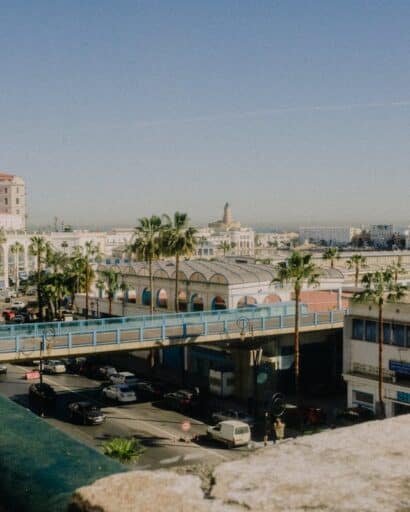
Those whose families plan to stay in Algeria for an extended period of time would be wise to enroll their children in a French International School in Algiers, as French is one of the most widely spoken languages in the country.
The English language is taught in many Algerian schools, and its use is widespread among the country’s youth, although there is no English school.
Children living in Algeria between the ages of six and fifteen are required to attend school, and the country offers opportunities for further education as well. There are 67 colleges and universities in Algeria, including the University of Algiers, which offers courses in medical, law, and science.
There is still much room for improvement in Algeria’s medical system, thus visitors are encouraged to bring as many first aid essentials as possible from their own countries.
You should talk to your doctor about if you need to stock up on any prescriptions before you travel, as some may be more difficult to purchase abroad.
It might be more difficult to reach a hospital from a more rural area, but if you are in close proximity and experience a medical emergency, the care you receive may be provided at no cost.
A private doctor should be consulted for less urgent medical issues. Make sure you have foreign health insurance or check with your employer to see if they offer anything similar, and do your research on any medical facility you want to visit.
There are areas with excellent medical care, however the norms vary greatly from one location to the next.
Road conditions are important since the country has Africa’s densest road network, with many great routes connecting large cities with country villages and desert highways.
When you first get here, renting a car is a fantastic option for getting around, but be aware that the minimum age requirement is 24. Fast and dependable train transit is available, and Algiers’ Metro metro system is among the fastest and safest in the world; private hire taxis are also plentiful in the cities.
Driving in Algiers depends on your status: you will need to apply for a visitor’s permit or a resident’s license to cover you on the Algerian roads.
Special mention: Libya
Libya is a North African country with a long coastline on the Mediterranean Sea and a Middle Eastern culture. A deadly civil upheaval broke out in Libya in February 2011, and the country is still trying to recover.
Protests and violent battles between opposition organizations and clan sections continue to occur intermittently around the country, despite the end of the crisis in October 2011 following the death of al-Gaddafi.
There is an emergency situation in Libya, according to the UN-backed Government of National Accord (GNA). Several foreign nations, including the US, UK and Australia, have recommended on their websites that citizens should not travel to Libya.
It goes without saying that Libya is no longer a desirable place for expatriates to live. Slowly but surely, some of the foreign corporations and expats who fled Libya at the height of the turmoil are making their way back.
However, the situation is still precarious, and jobs are not secure. Those looking to work in Libya as an expat should weigh their options carefully and keep a close eye on the situation.
Due to the low cost of living and generous relocation packages, expats in Libya can have a fantastic standard of living. Gas, groceries, and even public transportation are all reasonably priced.
Expats in Libya however have some of the highest living and electricity costs in the world. Having a backup generator is essential due to the widespread and frequent power outages that plague the country.
In comparison to the cost of living in Libya, high-speed internet and cable are prohibitively expensive. Expats should also plan for the cost of a private health insurance plan that includes coverage for emergency medical evacuation to a neighboring country.
Special Mention: Syria
Fighting has subsided in some areas of Syria after a protracted period of heavy conflict, making the country a slightly more plausible expat option.
We would, however, urge that any visitors or expats contemplating about visiting or migrating to Syria examine the situation of their destination thoroughly and consult their consulate for recent facts on the region.
Damascus, Homs, Aleppo, Latakia, and Tartus are some of the most popular destinations for foreigners and tourists because of their relative safety.
However, we again strongly advise exercising extreme caution and conducting extensive study before visiting these towns. The city of Idlib, as well as other parts of Syria, remain off-limits. Expats and tourists alike would be wise to steer clear of these at all costs.
As a result of the drawn-out conflict, safety and security have been important worries for foreigners residing in Syria. Thus, there is a significantly reduced expat community, although it appears that some travelers and expats are beginning to risk returning to this once-beautiful country.
The standard of living in Syria is far less expensive than in the West. Food and lodging are cheap enough that expats can live comfortably. Those that are paid in foreign currency will have little trouble making a comfortable living in Syria.
Formerly, many foreign workers relocated to Syria for jobs in the country’s oil business or diplomatic service once.
As a result, the country was well-equipped to welcome expats, with a number of international schools to educate expat children and some great private hospitals, all of which will no doubt resume operations once expats begin returning.
Conclusion and final thoughts
These are just a few examples, and the affordability of each country can vary depending on the city or region you choose to live in. It is essential to research and compare the cost of living in different areas to find the most suitable option for your budget and lifestyle.
Choosing to live in the Middle East can be an exciting and life-changing decision. By considering factors such as cost of living, housing, transportation, healthcare, job opportunities, safety, and cultural aspects, you can make an informed choice that aligns with your budget and lifestyle preferences.
While the Middle East may have a reputation for being an expensive region, there are several affordable countries that offer a high quality of life surrounding it in North Africa and the Gulf region.
The countries we listed are among the cheapest countries to live in the Middle East region, providing a range of opportunities and experiences for individuals and families.
It is important to conduct thorough research, visit the countries if possible, and consult with locals or expatriates who have experienced living in these countries. Each country has its own unique advantages and challenges, and what works for one person may not work for another.
Pained by financial indecision? Want to invest with Adam?

Adam is an internationally recognised author on financial matters, with over 760.2 million answer views on Quora.com, a widely sold book on Amazon, and a contributor on Forbes.

